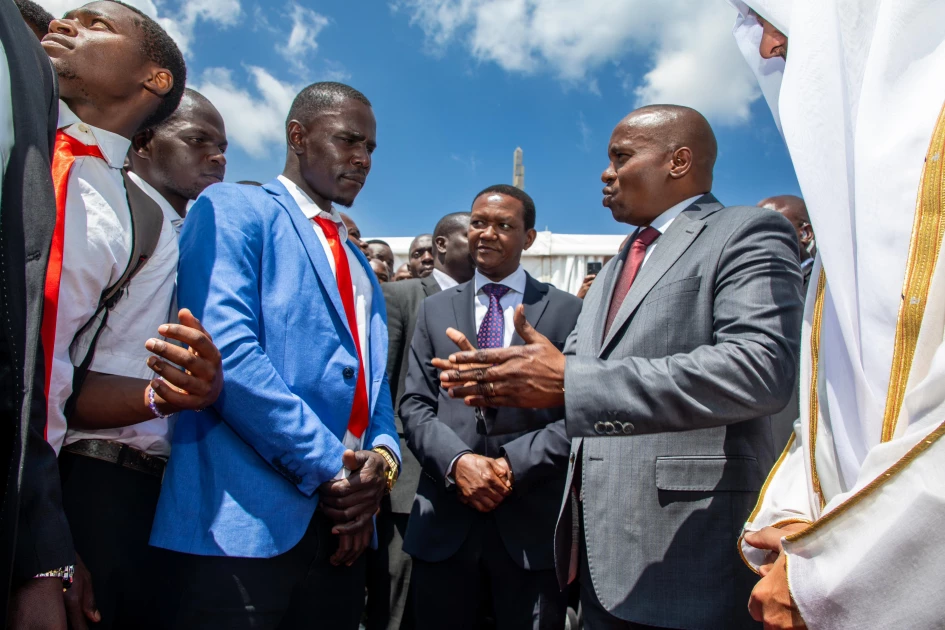Kindiki hails Kenya’s Labour mobility initiative as over 280,000 Kenyans secure jobs abroad

In his address, Kindiki emphasized the critical role job creation plays in the country’s economic development and reaffirmed the government’s commitment to tackling unemployment. “The future of Kenya depends on creating jobs that offer dignity, self-reliance, and prosperity for every citizen,” Kindiki said, underscoring the need for a multifaceted approach to solve this pressing issue.
According to the World Bank, Kenya’s unemployment rate is projected to reach 5.7% in 2024, with joblessness continuing to rise despite ongoing efforts. Kindiki acknowledged the complexity of the problem but assured the public that the government’s strategy is focused on long-term job creation through investments in sectors such as agriculture, manufacturing, green energy, technology, and tourism.
The Deputy President introduced the government’s “three-legged stool” strategy for job creation: Kazi kwa ground (local jobs), Kazi majuu (international labour mobility), and Kazi mtandaoni (digital jobs).
“Our job creation strategy ensures that we are not only creating jobs locally, but also preparing our youth for opportunities in the expanding digital economy and the global job market,” he explained.
A key part of the government’s efforts to promote labour mobility, Kindiki clarified, is not about labour migration but securing job opportunities abroad. He emphasized that the goal is to allow Kenyans to earn a decent living, utilize their skills, and reinvest back home.
In just two years, 282,000 diaspora jobs have been created, and the government continues to facilitate such opportunities.
“300 Kenyans will leave tonight for Qatar, another 7,700 will depart next week and early January, and another 8,000 will travel by March 2025,” Kindiki reported, underscoring the growing success of the program.
The Deputy President also highlighted the government’s focus on aligning the education system with industry needs. This includes the Recognition of Prior Learning (RPL) programme, which certifies skilled individuals without formal qualifications.
Over 6,000 workers have been certified through this initiative, providing them with the necessary credentials to pursue job opportunities.
“We are equipping our youth with the right skills through vocational training programs. This initiative is vital in ensuring that our youth are not only employable but also competitive on the global stage,” Kindiki stated.
In his remarks, Kindiki urged the private sector to step up its job creation efforts, particularly in emerging industries such as technology, agribusiness, and the creative economy. He called for enhanced public-private collaboration to build a strong ecosystem that promotes sustainable economic growth.
To the youth, Kindiki urged them to take full advantage of government-backed initiatives, vocational training, and the expanding digital job market. “Your energy and innovation are Kenya’s greatest assets,” he said.
Kindiki concluded by reaffirming the government’s commitment to fostering an inclusive economy where every Kenyan has the opportunity to succeed.
He expressed confidence that continued collaboration across sectors would result in a future where businesses thrive, young people flourish, and Kenya’s creative industries shine globally.
“We will continue building a Kenya that works for all,” Kindiki added.
Want to send us a story? SMS to 25170 or WhatsApp 0743570000 or Submit on Citizen Digital or email wananchi@royalmedia.co.ke
Comments
No comments yet.


Leave a Comment